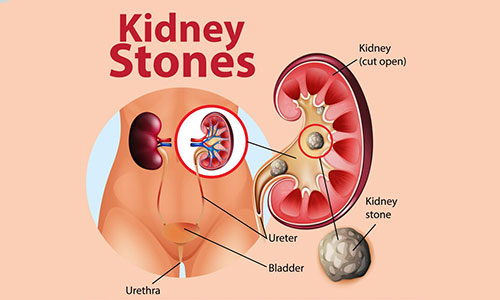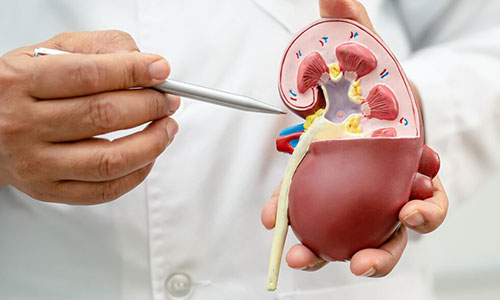- INFERTILITY TREATMENT
- BEST NIL SPERM AYURVEDIC TREATMENT IN INDIA
- MALE SEXUAL DISORDER
- FEMALE SEXUAL DISORDER
- PREMATURE EJACULATION
- ERECTILE DYSFUNCTION
- OLIGOSPERMIA
- NATURAL MENSTRUAL TREATMENT
- NATURAL MIGRAINE AYURVEDIC TREATMENT
- ASTHMA AYURVEDIC TREATMENT
- JOINT PAIN AYURVEDIC TREATMENT
- AYURVEDIC TREATMENT FOR LEUCORRHOEA
- AYURVEDIC TREATMENT FOR PILES
- AYURVEDIC TREATMENT FOR TONSIL PROBLEMS
- KIDNEY STONE AYURVEDIC TREATMENT GUIDE
- Ayurvedic Treatment for Acne – Natural & Lasting Solutions
- Ayurvedic Treatment for Cough
- Ayurvedic Treatment for Gallbladder Stones – Safe & Natural Relief
- Ayurvedic Treatment for Headache – Natural & Holistic Relief
- Ayurvedic Treatment for Sleeplessness – Natural Insomnia Remedies
- Ayurvedic Treatment for Uterus Cyst – Natural & Holistic Healing
- Ayurvedic Treatment for Uterus Swelling – Natural & Holistic Healing
- Ovary Cyst Ayurvedic Treatment
- Uterus Fibroid Ayurvedic Treatment
- Cholesterol Ayurvedic Treatment | American Hospital
- Hair Falling Ayurvedic Treatment
- Sinusitis Ayurvedic Treatment – Natural & Permanent Relief
- Fungal Infection Ayurvedic Treatment
- Urinary Tract Infection (UTI) Ayurvedic Treatment
- Ulcer Ayurvedic Treatment: Natural Healing for Gastric & Peptic Ulcers
- Gastritis Ayurvedic Treatment
- Sex Weakness Ayurvedic Treatment
- Vertigo Ayurvedic Treatment in India
- Epilepsy Ayurvedic Treatment
- Hysteria Ayurvedic Treatment
- Fatty Liver Ayurvedic Treatment
- Liver Enlargement Ayurvedic Treatment
- INFERTILITY TREATMENT
- निल स्पर्म का आयुर्वेदिक चिकित्सा | अमेरिकन हस्पताल अम्बाला छावनी हरियाणा
- पुरुष यौन समस्याओं का आयुर्वेदिक इलाज – अमेरिकन अस्पताल, अम्बाला छावनी
- महिला यौन विकृति आयुर्वेदिक उपचार | अमेरिकन अस्पताल, अम्बाला छावनी
- अमेरिकन अस्पताल, अम्बाला छावनी – शीघ्रपतन का आयुर्वेदिक उपचार
- नपुंसकता (Erectile Dysfunction) का आयुर्वेदिक उपचार
- ओलिगोस्पर्मिया (Oligospermia) का आयुर्वेदिक उपचार

Natural Kidney Stone Ayurvedic Treatment Guide
Kidney stones can be a painful and debilitating condition, affecting millions worldwide. However, the ancient wisdom of Ayurveda offers a natural and holistic approach to managing this health issue. This comprehensive guide explores traditional Ayurvedic methods for treating kidney stones, providing readers with an in-depth understanding of herbal remedies, dietary recommendations, and lifestyle changes that can help alleviate symptoms and prevent future occurrences.
Ayurveda, the traditional Indian system of medicine, views the human body as a delicate balance of three primary energies, or doshas: Vata, Pitta, and Kapha. When this balance is disrupted, various health conditions can arise, including the formation of kidney stones. By addressing the underlying imbalances and supporting the body’s natural healing processes, Ayurvedic practitioners aim to provide a lasting solution for those suffering from kidney stones.
Key Takeaways
- Discover the ancient Ayurvedic approach to treating kidney stones naturally
- Learn about the causes and symptoms of kidney stones from an Ayurvedic perspective
- Explore a range of Ayurvedic herbal remedies and their benefits for kidney health
- Understand the importance of dietary modifications and lifestyle changes in preventing kidney stones
- Gain insights into the role of Panchakarma, Ayurvedic detoxification, in managing kidney stones
Understanding Kidney Stones: Causes and Symptoms
Kidney stones, also known as renal calculi, are hard mineral deposits that form within the kidneys. These crystalline formations can cause significant discomfort and even serious health complications if left untreated. Understanding the causes and symptoms of kidney stones is crucial for seeking timely and effective natural remedies for renal calculi or herbal treatment for nephrolithiasis.
What Are Kidney Stones?
Kidney stones are typically composed of various minerals, such as calcium, uric acid, or cystine, that accumulate and crystallize in the kidneys. These stones can range in size from a few millimeters to several centimeters and can be smooth or jagged in appearance. The formation of kidney stones is often the result of an imbalance in the body’s mineral and fluid levels.
Common Symptoms of Kidney Stones
The symptoms of kidney stones can vary in severity and may include:
- Intense, sudden pain in the back, abdomen, or groin
- Difficulty urinating or a burning sensation during urination
- Blood in the urine (hematuria)
- Nausea and vomiting
- Fever and chills, indicating a possible infection
If you experience any of these symptoms, it is essential to seek medical attention promptly to prevent complications and explore natural remedies for renal calculi or herbal treatment for nephrolithiasis.
Symptom |
Description |
|
Sudden, severe pain |
The pain can be excruciating and may radiate from the back to the abdomen or groin as the stone moves through the urinary tract. |
|
Difficulty urinating |
Kidney stones can block the flow of urine, causing a burning sensation or difficulty passing urine. |
|
Blood in urine |
Stones can cause small amounts of blood to appear in the urine, which may be visible to the naked eye or detected through laboratory testing. |
|
Nausea and vomiting |
The pain caused by kidney stones can trigger nausea and vomiting, especially as the stone moves through the urinary tract. |
|
Fever and chills |
If a kidney stone causes a urinary tract infection, the person may experience fever and chills. |
By understanding the causes and recognizing the common symptoms of kidney stones, individuals can take proactive steps to seek natural remedies for renal calculi or herbal treatment for nephrolithiasis, ultimately improving their overall kidney health and well-being.
Overview of Ayurvedic Medicine
As an ancient traditional Indian medicine system, Ayurveda offers a unique perspective on the management of kidney stones, also known as nephrolithiasis. Rooted in a holistic approach to health, Ayurvedic principles emphasize the importance of maintaining balance within the body to prevent and treat various ailments, including alternative medicine for kidney stone management.
Principles of Ayurveda
How Ayurveda Approaches Health
Ayurvedic practitioners focus on tailoring treatments to the unique constitution of each individual, taking into account their predominant dosha, personal characteristics, and environmental factors. This personalized approach aims to restore balance and harmony within the body, thereby addressing the underlying causes of kidney stones and promoting overall well-being.- Ayurveda emphasizes the importance of lifestyle modifications, dietary changes, and the use of herbal remedies to manage kidney stones.
- Ayurvedic treatments often incorporate various techniques, such as Panchakarma (detoxification), yoga, and meditation, to support the body’s natural healing processes.
Types of Kidney Stones
In the realm of ayurvedic remedies for kidney stones, understanding the different types of renal calculi is crucial. Each variety of kidney stone requires a tailored approach to achieve effective natural treatment. Let’s explore the common types of kidney stones and how Ayurveda addresses them.Calcium Stones
Calcium stones, the most prevalent type, are composed primarily of calcium oxalate or calcium phosphate. Ayurvedic practitioners focus on balancing the Pitta dosha, which governs metabolic processes, to manage the formation of these stones. Herbal remedies like gokshura (Tribulus Terrestris) and varuna (Crataeva Nurvala) are often recommended to dissolve and expel calcium-based kidney stones.Uric Acid Stones
Uric acid stones are formed when there is an excess of uric acid in the body, often due to a Vata dosha imbalance. Ayurvedic treatments for uric acid stones aim to regulate the Vata dosha and promote the elimination of uric acid. Herbs like punarnava (Boerhavia Diffusa) and dietary modifications are often prescribed to manage this type of renal calculi.Struvite Stones
Struvite stones, also known as infection stones, are caused by bacterial infections in the urinary tract. Ayurvedic practitioners focus on addressing the underlying infection and restoring the natural balance of the Kapha dosha to prevent the formation of these stones. A combination of herbal remedies, dietary changes, and lifestyle adjustments is often recommended.Cystine Stones
Cystine stones are a rare type, resulting from a genetic disorder that causes the buildup of the amino acid cystine in the body. Ayurvedic treatments for cystine stones aim to support the body’s natural detoxification processes and promote the elimination of cystine through herbal remedies and dietary modifications. By understanding the specific characteristics of each type of kidney stone, Ayurvedic practitioners can tailor their natural remedies for renal calculi to address the root cause and provide effective, holistic solutions for individuals seeking relief from this common health concern.Ayurvedic Diagnosis of Kidney Stones
In the holistic approach to kidney stone treatment, Ayurvedic practitioners place great emphasis on understanding the individual’s unique body constitution through comprehensive diagnosis. This assessment lays the foundation for a personalized treatment plan that addresses the root causes of ayurvedic lifestyle changes for renal calculi.Importance of Pulse Diagnosis
A key diagnostic tool in Ayurveda is the examination of the patient’s pulse. By carefully observing the rhythm, strength, and quality of the pulse, Ayurvedic practitioners can gain valuable insights into the imbalances and disturbances within the body’s doshas, or fundamental energies.Evaluating Body Doshas
- Vata Dosha: Associated with movement, air, and space, an imbalance in Vata can contribute to the formation of kidney stones.
- Pitta Dosha: Linked to digestion, metabolism, and heat, an excess of Pitta may also increase the risk of certain types of kidney stones.
- Kapha Dosha: Responsible for structure, lubrication, and stability, a Kapha imbalance can play a role in the development of kidney stones.
Dosha |
Characteristic |
Connection to Kidney Stones |
| Vata | Movement, air, space | Imbalance can contribute to kidney stone formation |
| Pitta | Digestion, metabolism, heat | Excess may increase risk of certain types of kidney stones |
| Kapha | Structure, lubrication, stability | Imbalance can play a role in kidney stone development |
Ayurvedic Herbal Remedies for Kidney Stones
Ayurvedic medicine has a rich tradition of using natural herbs to address a variety of health concerns, including the management of kidney stones. Three prominent Ayurvedic herbs known for their efficacy in treating herbal treatment for nephrolithiasis and kidney stone ayurvedic treatment are Gokshura, Punarnava, and Varuna.Gokshura (Tribulus Terrestris)
Gokshura, also known as Tribulus Terrestris, is a powerful Ayurvedic herb that has been used for centuries to help dissolve kidney stones. It possesses diuretic properties, which can increase urine output and flush out the stone-forming substances from the urinary tract. Gokshura also helps to reduce inflammation and pain associated with kidney stones.Punarnava (Boerhavia Diffusa)
Punarnava, or Boerhavia Diffusa, is another Ayurvedic herb that has shown promising results in the treatment of herbal treatment for nephrolithiasis. It is believed to possess stone-dissolving properties and can help prevent the formation of new stones. Punarnava also supports overall kidney health by improving blood circulation and reducing inflammation.Varuna (Crataeva Nurvala)
Varuna, or Crataeva Nurvala, is an Ayurvedic herb that has been used to manage kidney stone ayurvedic treatment. It is known for its diuretic and anti-inflammatory properties, which can help in the expulsion of kidney stones. Varuna also helps to strengthen the urinary bladder and reduce the risk of stone recurrence. These Ayurvedic herbs can be used individually or in combination as part of a comprehensive herbal treatment for nephrolithiasis and kidney stone ayurvedic treatment approach. It is essential to consult with an Ayurvedic practitioner to determine the appropriate dosage and treatment plan for your specific condition.Diet Modifications to Prevent Kidney Stones
Ayurveda, the ancient Indian system of medicine, offers valuable insights into dietary recommendations for preventing and managing kidney stones. By understanding the ayurvedic approach to kidney health, individuals can make informed choices to support their overall well-being.Foods to Include
Ayurvedic practitioners often suggest incorporating the following foods into one’s diet to help prevent the formation of kidney stones:- Gokshura (Tribulus Terrestris): This herb is believed to have a diuretic effect, helping to flush out excess oxalate and other stone-forming compounds from the body.
- Punarnava (Boerhavia Diffusa): This plant is known for its ability to reduce inflammation and support kidney function.
- Leafy greens: Spinach, kale, and other leafy greens are rich in nutrients and low in oxalate, making them a beneficial addition to the diet.
- Hydrating fruits: Watermelon, cucumber, and citrus fruits can help increase fluid intake and dilute urine, reducing the risk of stone formation.
Foods to Avoid
Ayurvedic practitioners also recommend limiting or avoiding certain foods that may contribute to the development of kidney stones:- High-oxalate foods: Foods like nuts, rhubarb, and certain types of beans can increase the risk of calcium oxalate stones.
- Processed and salty foods: Excess sodium and processed ingredients can disrupt the body’s mineral balance and promote stone formation.
- Sugary and acidic beverages: Sodas, fruit juices, and other sweetened drinks can increase uric acid levels and contribute to stone development.
Lifestyle Changes for Kidney Stone Management
Adopting an ayurvedic lifestyle can be a holistic approach to preventing and managing kidney stones. By making specific changes to your daily habits, you can support your body’s natural kidney health and reduce the risk of renal calculi.Hydration Practices
Proper hydration is essential for flushing out minerals and preventing the formation of kidney stones. Ayurveda recommends drinking an adequate amount of water throughout the day. Aim for at least 2-3 liters of water daily, and consider adding lemon, lime, or cucumber to enhance the detoxifying properties.Yoga and Physical Activity
Incorporating yoga and other gentle physical activities into your routine can be beneficial for kidney stone management. Certain poses, such as child’s pose, seated forward bend, and reclined twist, can help stimulate the kidneys and promote the flow of vital fluids. Additionally, regular walking, swimming, or light aerobic exercise can support overall kidney health and prevent the recurrence of stones.- Practice yoga postures that target the kidney region
- Engage in low-impact physical activities to keep the body active
- Avoid high-intensity workouts that may strain the kidneys
Panchakarma: Detoxification in Ayurveda
In the realm of traditional Indian medicine, Ayurveda offers a comprehensive approach to health and wellness. At the heart of this ancient practice lies Panchakarma, a powerful system of detoxification and rejuvenation. For individuals struggling with kidney stones, often referred to as nephrolithiasis, Panchakarma can be a transformative journey towards better urinary tract health.What is Panchakarma?
Panchakarma, a Sanskrit term meaning “five actions,” is a multi-step Ayurvedic therapy that aims to cleanse the body, mind, and spirit. This holistic approach involves a series of purification techniques, including specialized herbal treatments, therapeutic massages, and controlled elimination of toxins from the body.

Benefits for Kidney Stone Patients
For those dealing with the discomfort and complications of ayurvedic treatment for kidney stones, Panchakarma can offer significant relief and support. By addressing the underlying imbalances that contribute to the formation of kidney stones, this traditional Indian medicine approach can help restore the body’s natural harmony. Some of the key benefits include:
- Effective elimination of accumulated toxins and waste materials from the urinary system
- Improved kidney function and reduced risk of stone recurrence
- Reduced inflammation and pain associated with kidney stones
- Balancing of the body’s Doshas (Vata, Pitta, and Kapha) to maintain optimal health
It’s important to note that Panchakarma should be undertaken under the guidance of experienced Ayurvedic practitioners. The process requires careful evaluation, customization, and professional supervision to ensure maximum benefits and safety for kidney stone patients.
Panchakarma Techniques | Benefits for Kidney Stone Patients |
Vamana (Therapeutic Vomiting) | Removes toxins and excess Pitta (fire element) from the body, reducing the risk of uric acid and calcium-based kidney stones. |
Virechana (Purgation) | Eliminates accumulated waste and toxins from the digestive system, promoting better kidney function and stone elimination. |
Basti (Medicated Enema) | Cleanses the colon, improves absorption of nutrients, and reduces inflammation in the urinary tract. |
Nasya (Nasal Administration) | Facilitates the drainage of toxins from the head and sinuses, benefiting the overall health of the urinary system. |
Rakta Moksha (Bloodletting) | Removes excess Pitta and uric acid from the bloodstream, reducing the risk of uric acid kidney stones. |
By incorporating the principles of Panchakarma into their overall treatment plan, individuals with kidney stones can leverage the power of traditional Indian medicine to achieve better urinary tract health and reduce the likelihood of future stone formation.
Ayurvedic Treatments for Pain Relief
When it comes to managing the pain associated with kidney stones, Ayurvedic medicine offers a range of natural remedies to provide relief. By harnessing the power of herbs and essential oils, Ayurvedic practitioners have developed time-tested approaches to alleviate the discomfort often experienced during the passage of natural remedies for renal calculi and herbal treatment for nephrolithiasis.
Herbs for Pain Management
Ayurvedic texts highlight several herbs known for their analgesic properties, which can be beneficial in managing kidney stone-related pain. Some of the most commonly recommended herbs include:
- Ashwagandha (Withania somnifera): This adaptogenic herb is renowned for its ability to reduce inflammation and pain, making it a suitable choice for individuals experiencing the discomfort of kidney stones.
- Guggulu (Commiphora mukul): This resin-based herb possesses potent anti-inflammatory and pain-relieving properties, helping to alleviate the symptoms associated with kidney stones.
- Turmeric (Curcuma longa): The active compound curcumin in turmeric has demonstrated remarkable anti-inflammatory and analgesic effects, making it a valuable ally in the management of kidney stone-related pain.
Essential Oils and Their Uses
In addition to Ayurvedic herbs, essential oils can also play a crucial role in providing relief from kidney stone-related pain. Some essential oils known for their pain-relieving properties include:
- Clove oil (Syzygium aromaticum): Renowned for its analgesic and anti-inflammatory properties, clove oil can be used topically or in a diffuser to alleviate discomfort associated with kidney stones.
- Frankincense oil (Boswellia serrata): This fragrant oil has been used in Ayurvedic medicine for its ability to reduce inflammation and promote relaxation, which can be beneficial for individuals experiencing kidney stone pain.
- Peppermint oil (Mentha piperita): The menthol in peppermint oil provides a cooling sensation and has been shown to have analgesic effects, making it a useful addition to the Ayurvedic toolkit for kidney stone pain management.
By incorporating these Ayurvedic herbs and essential oils into their treatment regimen, individuals struggling with kidney stones can find natural and effective ways to manage the associated pain and discomfort.
Role of Meditation and Mindfulness
In the realm of alternative medicine for kidney stone management, Ayurvedic principles emphasize the intricate connection between stress and the formation of renal calculi. Stress, a common affliction in our fast-paced world, can have a profound impact on our physical well-being, including the health of our kidneys.
Stress and Kidney Stones Connection
Elevated stress levels can contribute to the development of kidney stones by altering the body’s metabolic processes. Stress triggers the release of hormones like cortisol, which can influence the balance of substances like calcium, oxalate, and uric acid in the body. This disruption can lead to the crystallization and accumulation of these compounds in the kidneys, ultimately resulting in the formation of painful kidney stones.
Simple Meditation Practices
To combat the detrimental effects of stress on kidney health, Ayurvedic experts recommend the incorporation of meditation and mindfulness practices as part of an alternative medicine for kidney stone management. These ancient techniques can help restore the mind-body balance and support the body’s natural healing processes.
- Breath Awareness: Focusing on the natural rhythm of inhalation and exhalation can calm the mind and reduce stress levels.
- Body Scan Meditation: Gradually bringing attention to different areas of the body can promote relaxation and self-awareness.
- Mantra Recitation: Repetition of a soothing mantra or affirmation can help quiet the mind and induce a state of inner peace.
By incorporating these simple ayurvedic lifestyle changes for renal calculi, individuals can effectively manage stress and support their overall kidney health, complementing other Ayurvedic interventions for kidney stone prevention and management.
When to Seek Conventional Medical Help
While Ayurvedic remedies can be highly effective in managing kidney stones, there are certain cases where seeking conventional medical assistance is crucial. It’s important to be aware of the signs that indicate the need for professional medical intervention.
Signs of Serious Complications
If you experience any of the following symptoms, it’s essential to consult a healthcare provider immediately:
- Severe, persistent pain that is not relieved by Ayurvedic treatments
- Difficulty urinating or a complete blockage of urine flow
- Fever, chills, or signs of infection
- Blood in the urine or persistent hematuria
- Sudden, debilitating pain that may suggest a kidney stone has become lodged or is causing a blockage
Integrating Ayurveda with Western Medicine
A holistic approach to kidney stone treatment can involve a seamless integration of Ayurvedic and conventional medical practices. By working closely with both Ayurvedic and allopathic healthcare providers, individuals can benefit from the strengths of each system, ensuring comprehensive and effective management of their condition.
For instance, Ayurvedic preventive measures for kidney stones, such as dietary modifications and herbal remedies, can be combined with conventional diagnostic tests and, if necessary, minimally invasive procedures to remove larger stones. This collaborative approach can help individuals achieve optimal kidney health and prevent the recurrence of kidney stones.
Conclusion: Embracing Ayurvedic Wisdom for Kidney Health
As we conclude this comprehensive guide, it’s clear that the principles of Ayurvedic medicine offer a holistic approach to addressing kidney stone challenges. By understanding the root causes, embracing herbal remedies, and adopting lifestyle changes, individuals can take proactive steps towards preventing and managing kidney stones.
The Ayurvedic perspective emphasizes the importance of maintaining balance within the body’s systems, recognizing that kidney stones are often a manifestation of imbalances in the dosha system. Through targeted herbal supplements, dietary modifications, and practices like Panchakarma, Ayurveda aims to address the underlying imbalances and support the body’s natural healing processes.
For those seeking a natural and comprehensive approach to kidney stone ayurvedic treatment, the insights shared in this guide can serve as a valuable starting point. By incorporating ayurvedic remedies for kidney stones into their health regimen, individuals can empower themselves to take charge of their kidney health and reduce the risk of recurrent stone formation.
If you’re interested in exploring Ayurvedic options further, consider reaching out to American Hospital (WWW.OSHOGOD.COM, 94160 15050) for personalized guidance and treatment recommendations. By embracing the wisdom of Ayurveda, you can embark on a journey towards optimal kidney health and overall well-being.
FAQ
Some of the most effective Ayurvedic herbs for treating kidney stones include Gokshura (Tribulus Terrestris), Punarnava (Boerhavia Diffusa), and Varuna (Crataeva Nurvala). These herbs are known to have diuretic, anti-inflammatory, and stone-dissolving properties that can help manage and prevent kidney stones.
Ayurvedic diagnosis of kidney stones involves techniques like pulse diagnosis and evaluating the body’s dosha (constitutional) imbalances. This holistic approach helps Ayurvedic practitioners understand the underlying causes and develop personalized treatment plans for each individual.
Ayurvedic dietary recommendations for kidney stone prevention include increasing intake of foods like lemon, watermelon, and cucumber, which have diuretic properties. Limiting foods high in oxalates, such as spinach, rhubarb, and nuts, is also advised.
Ayurvedic lifestyle modifications for kidney stone management include staying hydrated, practicing specific yoga poses, and incorporating Ayurvedic detoxification techniques like Panchakarma. These changes can help dissolve existing stones and prevent new stone formation.
It’s important to seek conventional medical help if you experience severe pain, signs of infection, or if the stone is causing obstructions. While Ayurvedic treatments can be effective, it’s crucial to integrate them with Western medicine for comprehensive care, especially in cases of serious complications.

